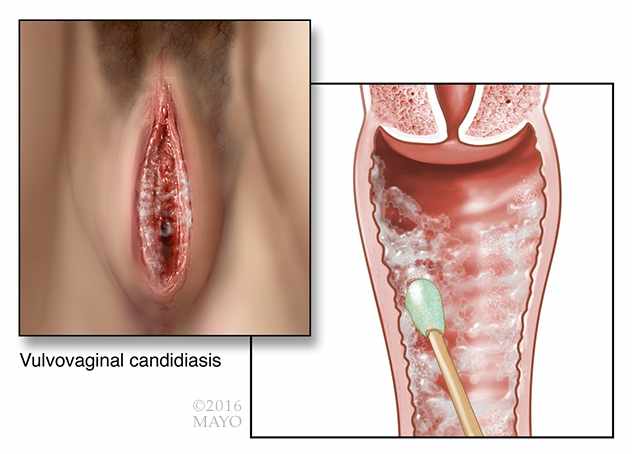-
Women’s Wellness: Vaginal yeast infections

A vaginal yeast infection is a fungal infection that causes irritation, discharge and intense itchiness of the vagina and the vulva — the tissues at the vaginal opening. It's a type of vaginitis, or inflammation of the vagina. Vaginal yeast infection (also called vaginal candidiasis) affects up to 3 out of 4 women at some point in their lifetimes. Many women experience at least two episodes.
Although a vaginal yeast infection isn't considered a sexually transmitted infection, you can spread the fungus through mouth to genital contact. Medications can effectively treat vaginal yeast infections. If you have recurrent yeast infections — four or more within a year — you may need a longer treatment course and a maintenance plan.

Symptoms
Yeast infection symptoms can range from mild to moderate and include:
- Itching and irritation in the vagina and the tissues at the vaginal opening (vulva)
- A burning sensation, especially during intercourse or while urinating
- Redness and swelling of the vulva
- Vaginal pain and soreness
- Vaginal rash
- Watery vaginal discharge
- Thick, white, odor-free vaginal discharge with a cottage cheese appearance
Complicated yeast infection
You might have a complicated yeast infection if:
- You have severe symptoms, such as extensive redness, swelling and itching that leads to tears or cracks (fissures) or sores
- You have four or more yeast infections in a year
- Your infection is caused by a type of candida other than Candida albicans
- You're pregnant
- You have uncontrolled diabetes
- Your immune system is weakened because of certain medications or conditions such as HIV infection
When to see a doctor
Make an appointment with your doctor if:
- This is the first time you've had yeast infection symptoms
- You're not sure whether you have a yeast infection
- Your symptoms don't disappear after treating with over-the-counter antifungal vaginal creams or suppositories
- You develop other symptoms
Read more about: Treatments and diagnosis








